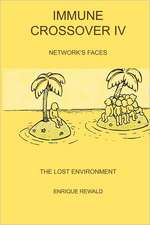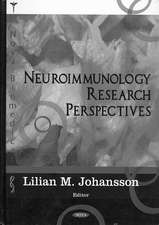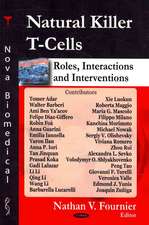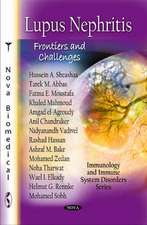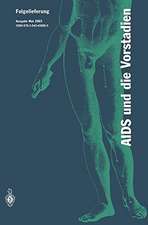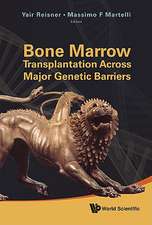The Vaccine Book
Editat de Barry R. Bloom, Paul-Henri Lamberten Limba Engleză Paperback – 13 iul 2016
Although vaccines are now available for many diseases, there are still challenges ahead for major diseases, such as AIDS, tuberculosis, and malaria. This book is designed for students, researchers, public health officials, and all others interested in increasing their understanding of vaccines. It answers common questions regarding the use of vaccines in the context of a rapidly expanding anti-vaccine environment.
This new edition is completely updated and revised with new and unique topics, including new vaccines, problems of declining immunization rates, trust in vaccines, the vaccine hesitancy, and the social value of vaccines for the community vs. the individual child’s risk.
- Provides insights into diseases that could be prevented, along with the challenges facing research scientists in the world of vaccines
- Gives new ideas about future vaccines and concepts
- Introduces new vaccines and concepts
- Gives ideas about challenges facing public and private industrial investors in the vaccine area
- Discusses the problem of declining immunization rates and vaccine hesitancy
Preț: 586.38 lei
Preț vechi: 688.78 lei
-15% Nou
Puncte Express: 880
Preț estimativ în valută:
112.20€ • 117.16$ • 92.65£
112.20€ • 117.16$ • 92.65£
Carte tipărită la comandă
Livrare economică 08-22 aprilie
Preluare comenzi: 021 569.72.76
Specificații
ISBN-13: 9780128021743
ISBN-10: 0128021748
Pagini: 664
Dimensiuni: 152 x 229 x 38 mm
Greutate: 1.07 kg
Ediția:2. Auflage.
Editura: ELSEVIER SCIENCE
ISBN-10: 0128021748
Pagini: 664
Dimensiuni: 152 x 229 x 38 mm
Greutate: 1.07 kg
Ediția:2. Auflage.
Editura: ELSEVIER SCIENCE
Cuprins
Part I: Understanding Vaccine Impact at Population and Individual Levels
1. The Impact of Vaccination on the Epidemiology of Infectious Diseases
2. How Vaccines Work
Part II: How to Design, Assess and Produce Vaccines
3. Vaccine Design in the 21st Century
4. Vaccine Adjuvants
5. Vaccine Production: Main Steps and Considerations
6. How are Vaccines Assessed in Clinical Trials?
7. Immunological Correlates of Vaccine-Mediated Protection
Part III: Vaccine Safety
8. How Vaccine Safety is Monitored
9. Vaccination and Autoimmune Diseases
Part IV: New Vaccination Strategies
10. Maternal Immunization: Protecting Vulnerable Populations
11. New Challenges for Pertussis Vaccines
Part V: Recently Introduced Vaccines
12. Pneumococcus, Pneumococcal Disease, and Prevention
13. Human Papillomavirus Vaccines
14. Rotavirus Vaccines
Part VI: New Approaches for Needed Vaccines
15. Antiviral Vaccines: Challenges and Advances
16. New Approaches for Needed Vaccines: Bacteria
17. Vaccines Against Parasites
Part VII: Major Global Vaccine Challenges
18. Tuberculosis Vaccines
19. Major Global Vaccine Challenges: Recent Progress in Malaria Vaccine Development
20. AIDS Vaccines
21. Influenza Vaccines and Vaccination Strategies
Part VIII: Ethical Considerations
22. Ethical Considerations in Vaccine Trials in Resource-Limited Settings
Part IX: Vaccine Economics
23. Economic Considerations for the Development of Global Vaccines: a Perspective From the Vaccine Industry
24. Introduction of Vaccines Into National Programs
25. Transitioning Immunization Into the Health Care System: Strengthening Routine Immunization in India
Part X: Trust in Vaccines
26. Vaccine Acceptance
27. Trust and Confidence in Vaccines: Tales of Three Vaccines, Lessons for Others
Part XI: Future Challenges
28. Vaccines for Emerging Viral Diseases
29. Cancer Immunotherapy by Checkpoint Blockade
30. Adoptive Cellular Therapy With Synthetic T Cells as an “Instant Vaccine for Cancer and Immunity
1. The Impact of Vaccination on the Epidemiology of Infectious Diseases
2. How Vaccines Work
Part II: How to Design, Assess and Produce Vaccines
3. Vaccine Design in the 21st Century
4. Vaccine Adjuvants
5. Vaccine Production: Main Steps and Considerations
6. How are Vaccines Assessed in Clinical Trials?
7. Immunological Correlates of Vaccine-Mediated Protection
Part III: Vaccine Safety
8. How Vaccine Safety is Monitored
9. Vaccination and Autoimmune Diseases
Part IV: New Vaccination Strategies
10. Maternal Immunization: Protecting Vulnerable Populations
11. New Challenges for Pertussis Vaccines
Part V: Recently Introduced Vaccines
12. Pneumococcus, Pneumococcal Disease, and Prevention
13. Human Papillomavirus Vaccines
14. Rotavirus Vaccines
Part VI: New Approaches for Needed Vaccines
15. Antiviral Vaccines: Challenges and Advances
16. New Approaches for Needed Vaccines: Bacteria
17. Vaccines Against Parasites
Part VII: Major Global Vaccine Challenges
18. Tuberculosis Vaccines
19. Major Global Vaccine Challenges: Recent Progress in Malaria Vaccine Development
20. AIDS Vaccines
21. Influenza Vaccines and Vaccination Strategies
Part VIII: Ethical Considerations
22. Ethical Considerations in Vaccine Trials in Resource-Limited Settings
Part IX: Vaccine Economics
23. Economic Considerations for the Development of Global Vaccines: a Perspective From the Vaccine Industry
24. Introduction of Vaccines Into National Programs
25. Transitioning Immunization Into the Health Care System: Strengthening Routine Immunization in India
Part X: Trust in Vaccines
26. Vaccine Acceptance
27. Trust and Confidence in Vaccines: Tales of Three Vaccines, Lessons for Others
Part XI: Future Challenges
28. Vaccines for Emerging Viral Diseases
29. Cancer Immunotherapy by Checkpoint Blockade
30. Adoptive Cellular Therapy With Synthetic T Cells as an “Instant Vaccine for Cancer and Immunity

